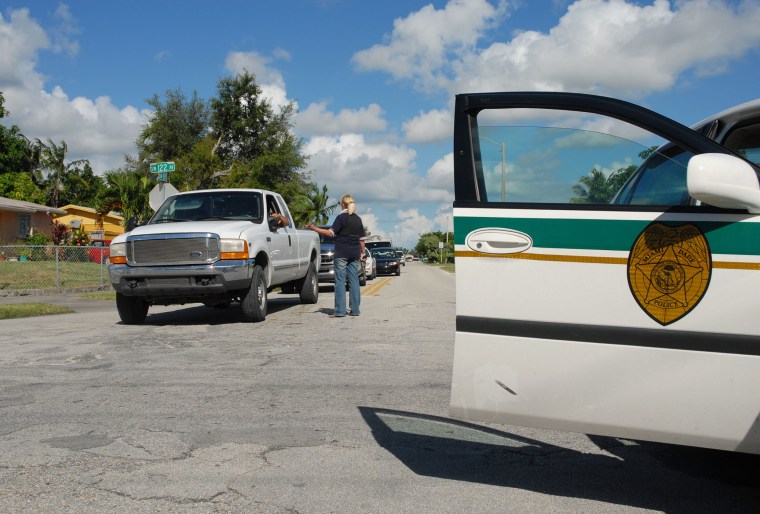Black people were twice as likely to be stopped for seat belt violations than white people in Florida in 2014, according to a report released Wednesday by the American Civil Liberties Union.
The ACLU report, titled “Racial Disparities in Florida Safety Belt Law Enforcement,” said in 2014, Florida police issued 970 seat belt citations per every 100,000 white drivers and 1,821 seat belt citations per every 100,000 black drivers, making black drivers about 1.9 times more likely to be pulled over for seat belt violations. The ACLU is also calling for an investigation by the Florida attorney general’s Office of Civil Rights and County Commissions as a result of this newly found racial disparity.
The Florida Police Benevolent Association was not immediately available for comment.
The data for the ACLU report was collected by Florida police agencies, which have been required since 2006 to report the race and ethnicity of people who police find violate the seat belt law. Florida also enforces a primary seat belt law, meaning an officer can issue a ticket to a driver not wearing a seat belt without having to violate another traffic law.
The report added that 21.9 percent of seat belt citations were issued to black motorists in 2014. However, African-Americans make up only 13.5 percent of Florida's population, according to census data. If the seat belt law was proportionately enforced, the report said there would have been 20,296 fewer citations in 2014.
"The numbers are shocking,” Nusrat Choudhury, an attorney with the ACLU's Racial Justice Program and co-author of the report, said in a statement. "It raises a red flag when seat belt enforcement by specific agencies leads to racial disparities that exceed even the dramatic statewide gap. These agencies must take steps to address the disparities and promote fair and impartial policing."
No non-racial differences could be found to explain the staunch racial variance in seat belt citations, the report said.
In fact, the report cited a 2014 study by the Florida Department of Transportation that observed the behavioral patterns and uses of seat belts. The FDOT study found that black people were only 5.7 percent less likely to wear a seat belt than white people, with 91.5 percent of white people saying they wear a seat belt compared to 85.8 percent of black people who also wear seat belts. The ACLU report added that black people would have to wear seat belts 45 percent less often than white people in order to explain the nearly doubled rate of citations among black drivers in Florida.
